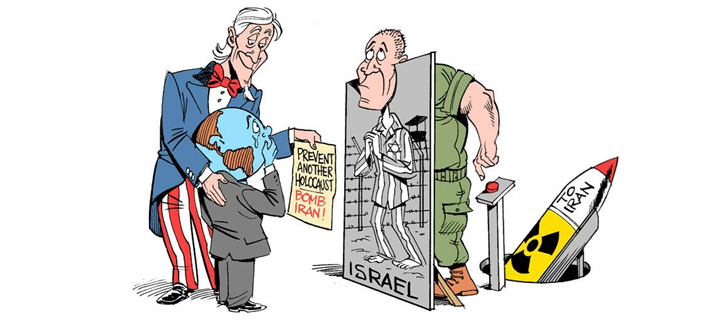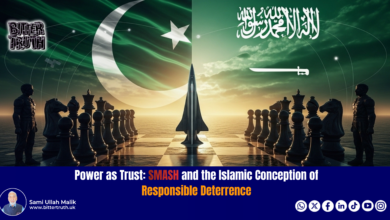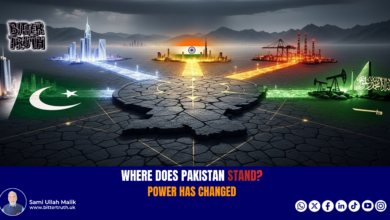Possible Consequences of Israeli Attacks on Iran’s Nuclear Targets
Is the World Moving Towards a New War
The quiet storm brewing after Iran’s ballistic missile strikes on Israel has caused a surprising upheaval, and dangerous speculations are emerging about the possible nature of the reactions in the region. Both sides are now issuing severe and shocking threats of retaliation. Israeli Defense Minister Yoav Gallant warned that Israel’s response will be “deliberate, targeted, and so lethal that Iran will not be able to predict its scope.” It seems that the countdown for these dangerous retaliatory attacks has begun in the region. The question is, will the world powers allow the situation to plunge into darkness?
According to the Iranian government, its ballistic missile attacks were a response to the assassination of Hezbollah leader Hassan Nasrallah and Hamas political leader Ismail Haniyeh, implying that Iran also sent a message of ceasefire. However, due to continued Israeli attacks in Lebanon and Gaza, Hezbollah retaliated by launching a drone strike on a military base in Binyamin, about 33 kilometers south of Haifa in northern Israel, resulting in the death of four Israeli soldiers and injuring over 60 others. This was confirmed by the Israel Defense Forces (IDF). Hezbollah’s media office claimed responsibility for the attack, stating that it targeted the Golani Brigade training camp in the area between Tel Aviv and Haifa. The attack was carried out on Thursday in response to Israeli assaults on southern Lebanon and Beirut.
Meanwhile, U.S. Defense Secretary Lloyd Austin contacted Israel’s Defense Minister via phone, urging the protection of “United Nations peacekeeping troops” in Lebanon. A spokesperson for 10 Downing Street also expressed shock at reports suggesting that Israel deliberately fired on a UN peacekeeping post in southern Lebanon. Both the European Union and Sri Lanka condemned the targeting of peacekeeping forces. Israel had previously admitted that two peacekeepers were injured by its forces’ gunfire in southern Lebanon. The UNIFIL (United Nations Interim Force in Lebanon) had earlier stated that any deliberate attack would be a serious violation of international humanitarian law.
In light of these deteriorating conditions, Iran has warned the Gulf states that maintain diplomatic relations with Israel not to allow the use of their airspace for any potential Israeli response, as any assistance to Israel will also be targeted by Iran.
These are just a few factors being considered in discussions between the U.S. and Israel regarding Israel’s possible response. Washington has already stated that it opposes any Israeli action against Iran’s nuclear facilities. With the U.S. presidential election on November 5, 2024, the White House is unlikely to welcome any attack on Iranian oil facilities, which could impact global oil prices, nor does it wish to be drawn into another conflict in the Middle East. On the other hand, Israel’s allies, who had urged restraint following the Iranian attack on Israel in April of this year, are now notably silent. Israel, after threatening to confront all its enemies in Lebanon, Gaza, Yemen, and Syria simultaneously, seems unlikely to back down under Prime Minister Netanyahu’s leadership.
With the help of U.S. satellite intelligence and Mossad operatives in Iran, the Israeli military has a range of targets in Iran to choose from, categorized into four levels:
- Israel’s primary targets would be the bases from which Iran launched the recent ballistic missiles. These include Iranian launch pads, command and control centers, fuel tanks, and bunker-stored warehouses.
- In addition, Israel may target the bases of the Islamic Revolutionary Guard Corps (IRGC), air defense systems, and other missile batteries. It could also attempt to assassinate key figures involved in Iran’s ballistic missile program through its agents.
- Israel might target Iran’s economic infrastructure, including petrochemical plants, power generation facilities, and possibly its maritime industry. However, this would be highly unpopular among the Iranian public, as it would harm civilians far more than military targets, potentially pushing Iran towards unconventional retaliation.
- Will Israel dare to attack Iran’s nuclear programme and risk pushing the world into a new global conflict? This would be the most significant and consequential step of all. The UN’s nuclear watchdog has confirmed the well-known fact that Iran is enriching uranium far beyond the 20% required for civilian nuclear power. Israel and others suspect that Iran is attempting to reach the “breakout point” where it could produce a nuclear bomb in a very short time. Israel’s potential list of Iranian nuclear targets includes key facilities at Parchin, the centre of Iran’s military nuclear programme, as well as research reactors in Bonab and Ramsar, and major nuclear sites in Bushehr, Natanz, Isfahan, and Fordow.
However, the question is: after these actions, Iran’s response would certainly be even more severe. Israel and its allies will undoubtedly be strategising to counter this reaction, as the consequences of such dangerous actions could plunge the world into darkness. In the West and America, there is growing concern over these precarious developments. The prevailing view is that Iran’s stance should be acknowledged, especially since its recent ballistic missile strikes on Israeli military targets have balanced the score. But if Israel escalates further, Iran will retaliate once again.
Iran’s President, Masoud Pezeshkian, has stated that what the world has seen so far is just a “small glimpse” of Iran’s capabilities. The Islamic Revolutionary Guard Corps (IRGC) reinforced this message by declaring, “If the Zionist regime responds to Iran’s actions, it will face crushing attacks.” According to global defence analysts, Iran cannot defeat Israel militarily. Its air force is outdated and dilapidated, its air defence is vulnerable, and it has been dealing with harsh Western sanctions for many years. However, Iran still possesses ballistic and other missiles, along with explosive-laden drones and multiple allied militias across the Middle East. These missiles could easily target Israeli civilian areas instead of military bases in the next round. The 2019 attack on Saudi Arabia’s oil facilities by an Iran-backed militia proved how easily Iran can strike its neighbours.
The IRGC’s navy, which operates in the Persian Gulf, has a large fleet of small but fast missile boats that could potentially overwhelm the US Navy’s Fifth Fleet in a coordinated attack. If ordered, it could also attempt to lay mines in the Strait of Hormuz, severely disrupting the flow of 20% of the world’s daily oil exports. This would have a catastrophic impact on the global economy. Additionally, American military bases are scattered all along the Arab shores of the Persian Gulf, from Kuwait to Oman. Iran has warned that if it is attacked, it will not only retaliate against Israel but also target any country that supports such an attack.
These are just some of the frightening scenarios that defence planners in Tel Aviv and Washington are likely considering.






